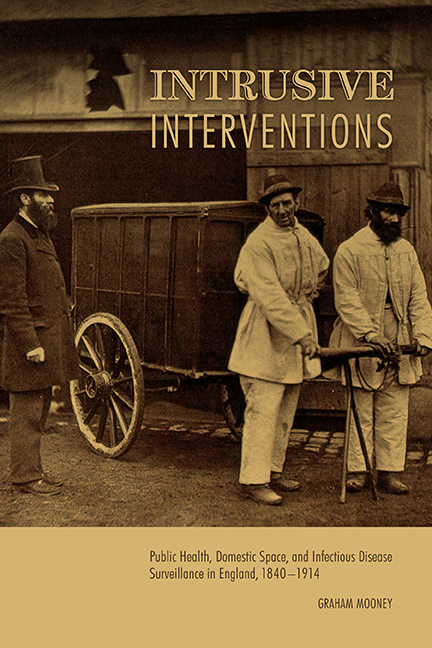 Intrusive Interventions
Intrusive Interventions Summary
Intrusive Interventions opened with a focus on citizenship. It closes with the same. The year is 1908. The place is the inaugural issue of the Sociological Review, edited by Leonard Trelawney Hobhouse, a leading proponent of social liberalism. We have already met the writer, Dr. (later Sir) W. Leslie Mackenzie, from the Scottish Local Government Board. Mackenzie was the innovator who attached a bicycle inner tube and a T-shaped crosspiece to a disinfecting spray pump, thus making it “liberal.”
The theme for Mackenzie's paper was “The Family and the City: Their Functional Relations.” Explicating the tenets of a new liberalism, Mackenzie stressed the interdependence of the family and urban space. In a quite remarkable disquisition, he explored the idea that modern city life decimated the traditional role of the family, which was “the infant school of ethics... a social molecule... to provide nurture for the child.” In a passage reminiscent of Benjamin Ward Richardson's Hygeia, Mackenzie argued that the ultimate object of the city was to preserve the family: there “must be streets to move by, space to give air and light, water to make cleaning and cleanliness possible, drains to remove soil, artificial light to reduce the dangers of darkness, and the thousand other mechanisms organic to the city.” The technological components of the liberal city were no less “organic” than the families that lived in it.
George Buchanan had called in 1876 for “Citizenship in Sanitary Work” through a type of voluntary participation that cast responsibility on individuals but rewarded them with the right to self-government. Little more than thirty years later, Mackenzie extolled the virtues of city administration in the early twentieth century that had been “created by multitudes of men, out of millions of individual impulses and ideas [and] is capable of becoming the imaginative expression of every one man's mind, the instrument of every one man's will.” Despite the breathtaking ignorance and carelessness of parents, the potentiality of the city worked to resist the decay of responsibility. When a father sent his son to elementary school, it was not “an alien association,” but “the office he himself has created, the organ of culture originating at the home but outgrowing the home in largeness of effect and in efficiency.”
- Type
- Chapter
- Information
- Intrusive InterventionsPublic Health, Domestic Space, and Infectious Disease Surveillance in England, 1840-1914, pp. 179 - 182Publisher: Boydell & BrewerPrint publication year: 2015
